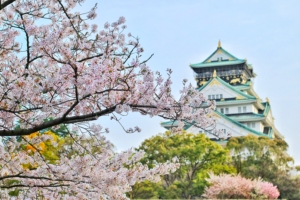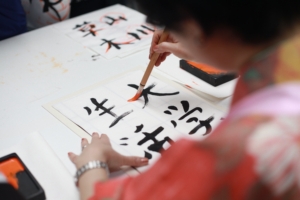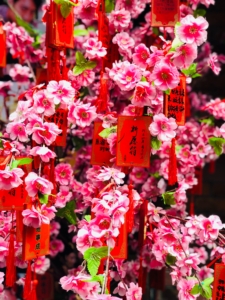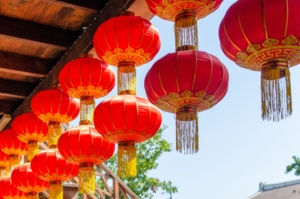The importance of personal names has always been recognized in popular culture. Shakespeare’s Juliet famously wondered: “What’s in a name?” Latin proverbs, such as “Nomen est omen”, which can be freely translated “The name is a prediction”, prove that casual links between a person’s name and their destiny have been proclaimed since the ancient times.
More recently, scholars have been debating about nominative determinism, a hypothesis according to which people are more likely to pursue careers which have some connection to their names.
While in most countries the discussions about the possible links between names and fate remain purely speculative, there are several cultures, especially Asian, in which names are believed to be strong indicators of their bearers’ destiny. Let’s explore together some of these cultures and their fascinating naming traditions.
Burmese names: written in the stars
When choosing the name of their babies, Burmese parents usually consult with astrologers. The first question that they are asked regards the day of the week on which their children were born, in order to determinate their astrological sign. What is special about the Burmese people is that they divide Wednesday in two parts, each half representing a separate day.
As a rule, the name of the child must begin with one of the letters associated with his/her specific day of birth, as it appears in the list below:
- Monday: k (က), hk (ခ), g (ဂ), g (ဃ), ng (င);
- Tuesday: s (စ), hs (ဆ), z (ဇ), z (ဈ), ñ (ည, ဉ);
- Wednesday morning: l (လ), w (ဝ);
- Wednesday afternoon: y (ယ), y / r (ရ);
- Thursday: p (ပ), hp (ဖ), b (ဗ), b (ဘ), m (မ);
- Friday: th (သ), h (ဟ);
- Saturday: t (တ), ht (ထ), d (ဒ), d (ဓ), n (န);
- Sunday: vowel (အ, ဣ, ဩ).
Changing one’s name is extremely common in Burma and it is usually done in order to modify one’s destiny. There are no legal limitations when it comes to changing names, as the approval of the government is not needed. The only formality which Burmese people have to do in order to modify their name, thus their fate, is to fill out some documents. Similarly to naming newborns, the process of selecting a new name for adults involves astrological methods.
The same happens in Thailand, as the majority of people believe that changing their name represents the solution of all their misfortunes. Many Thais choose to modify their name several times during their life, hoping to break out of cycles of unlucky events, including health issues, financial problems, unbalanced relationships, or unsatisfying careers.
Japanese names: lucky strokes
The Japanese believe that the number of strokes in the characters making up one’s name predict not only their future, success, health, and happiness, but also their personality. A Japanese name usually consists of two characters in the last name, respectively two characters in the first name. When writing these characters, each time the pen is lifted from the paper, it is counted as a separate stroke.
Here are some examples of numbers of strokes and their meaning:
- 5 strokes – good fortune (福寿運); it predicts harmony and is considered one of the luckiest combinations to have in a name;
- 8 strokes – perseverance (根気); lucky number, as it predicts a quiet and hardworking personality;
- 9 strokes – adversity (逆境); unlucky number, as it predicts a nervous temper;
- 12 strokes – frustration 挫折; unlucky number, as it predicts loneliness and a weak spiritual life;
- 18 strokes – bravery (剛気); lucky number, as it predicts leadership, honor, courage, respect, and generosity;
- 21 strokes – leadership (指導); lucky number, as it predicts intelligence, harmony, cooperation, and high standards;
- 24 strokes – productivity (興産); lucky number, as it predicts cooperation, kindness, calmness, and stability;
- 26 strokes – turbulence (波乱); unlucky number, as it predicts greed, turmoil, and stubbornness;
Chinese names: elements in balance
In traditional Chinese culture, personal names have always carried a huge importance. Chinese communities believe that a name can affect one’s fortune in every aspect of their lives. Therefore, people seek advice from fortune tellers in order to decide whether a change of name may improve their luck.
Newborns are named after a complex analysis of their time of birth and the elements of the Chinese characters – water, wood, fire, earth, and metal – which coincide on the astrological calendar. Ideally, all the elements in a name are in perfect equilibrium. With the help of fortune tellers, individuals who are going through a period of unfortunate events may introduce a new element in their name, in way to repair the imbalance which may cause bad luck.
Studies conducted in 2016 underline a link between the big amounts of applications for modifying names and the prolonged periods of high unemployment. This connection suggests that name-changing trends tend to appear during times of uncertainty.
All names have special meanings, depending on their cultural and historical roots. However, when names are believed to hold destiny or are meant to be aspirational, their significance grows even more, and the journey of selecting the name of a child becomes the equivalent of peering into a crystal ball.












